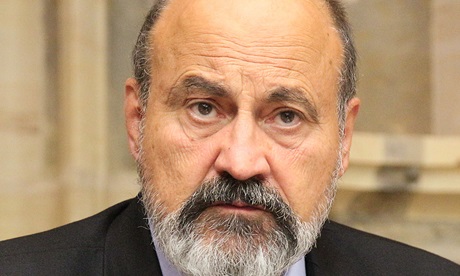Czech theologian and priest Tomas Halik explains in an interview with katholisch.de why this is not the end, but just the beginning, now the second session of the World Synod in Rome is over.
- Mr Halik, the discussions at the second session of the World Synod have come to an end after almost four weeks. How do you assess the final phase?
Halik: I am convinced that the future of Christianity – at least in this first century of the third millennium – depends to a large extent on how the process of synodal renewal of the Church continues.
What most threatens synodal renewal is the idea that the second session is some kind of conclusion to the synodal process. In reality, it must be a beginning.
- How do you think the success of synodality should be measured?
Halik: It must be measured primarily on two levels: The first is the transformation of mentality, which presupposes a deepening of theology and spirituality.
The second is the ability of the Church to extend the synodal principle beyond the visible boundaries of the Church and to offer it as inspiration in order to transform the process of globalisation into a process of sharing, mutual respect and compatibility in the spirit of the encyclical “Fratelli tutti” (2020) to transform it.
- There were some “controversial” topics during the Synod, such as the Church’s treatment of LGBTQ people, more lay participation and the question of the ordination of women. But this synod was not supposed to make any decisions. What does Pope Francis really want to achieve?
Halik: The synod assembly in Rome is not an ecumenical council, but rather a kind of “retreat”, “spiritual exercises”.
They are intended to inspire a rethink, show the direction of the way forward and encourage people to walk this path independently and creatively together in the local churches – bishops, priests and laity, people in the “centre” and on the “periphery” of the Church.
- What else can we expect in the future? How will the process continue?
Halik: It will be important for the diocesan and continental synods to build on the current phase of the synodal process and, above all, for the existing synodal groups to continue their work.
The work of the existing theological advisory commissions of the Synod will certainly be supported by the “Magisterium of Theologians” with further proposals.
- What is the next step you think the Church should take?
Halik: What we can expect as the next step and as a fruit of the experience so far is a greater decentralisation of the Church.
Some concrete reforms that were expected by many have not materialised, probably mainly because it is clear that some local churches are ripe for reform and others are not yet.
One reason for this is, for example, the different understanding of the role of women in the various cultures.
I fear that some local churches – especially in some post-communist countries – have not yet sufficiently embraced the Second Vatican Council (1962-1965).
It is therefore not surprising that they are hesitant to continue along this path. The overall situation today is different from that of the 1960s, when the Church came to terms with modernity – piquantly enough, at a time when modernity was already coming to an end.
- What should synodal renewal look like then?
Halik: Paradoxically, those who expect radical institutional changes from the second session of the synod – and will probably be disappointed – are displaying a clerical attitude: they expect changes “from above”.
Synodal renewal, however, should be a response to the new “signs of the times” – but this task still awaits the Church on the next stage of the synodal journey.
The continuation of the synodal process requires a deepening of theology and spirituality, or rather a linking of theology and spirituality, as Pope Francis proposed in his motu propriu “Ad theologiam promovendam” (2023).
- First published in katholisch.de and translated in english.katolisch.de
- Mario Trifunovic is a student of Catholic theology in Frankfurt/Main.
